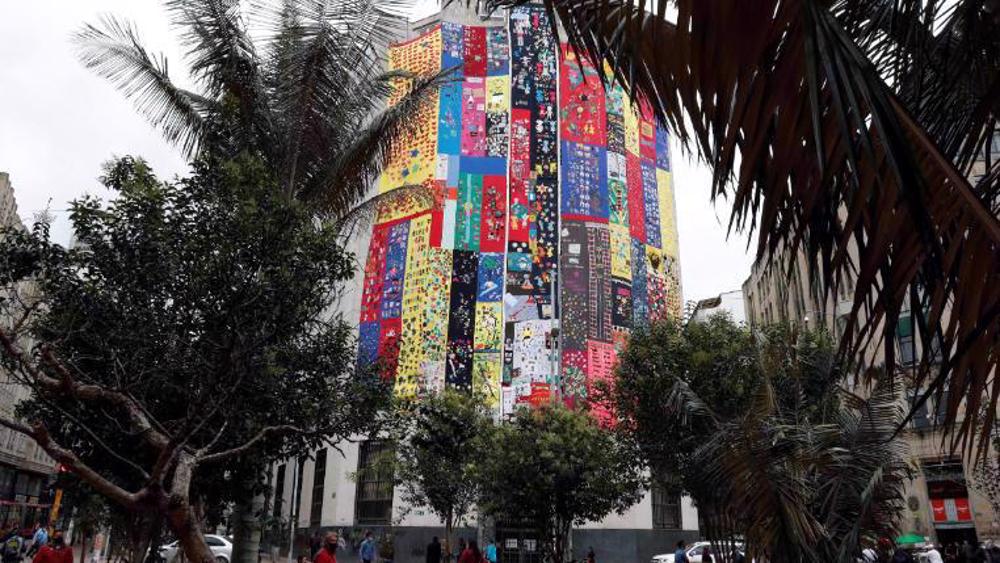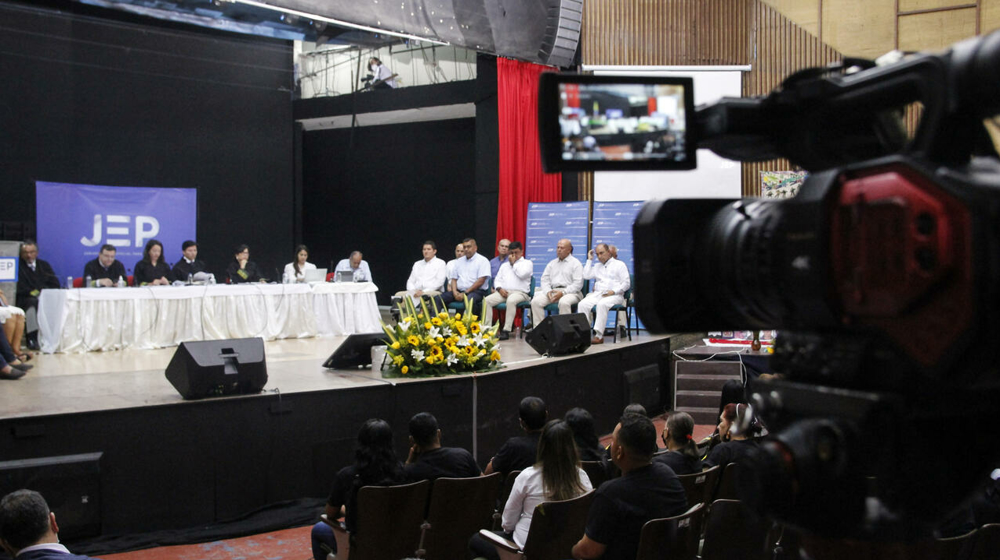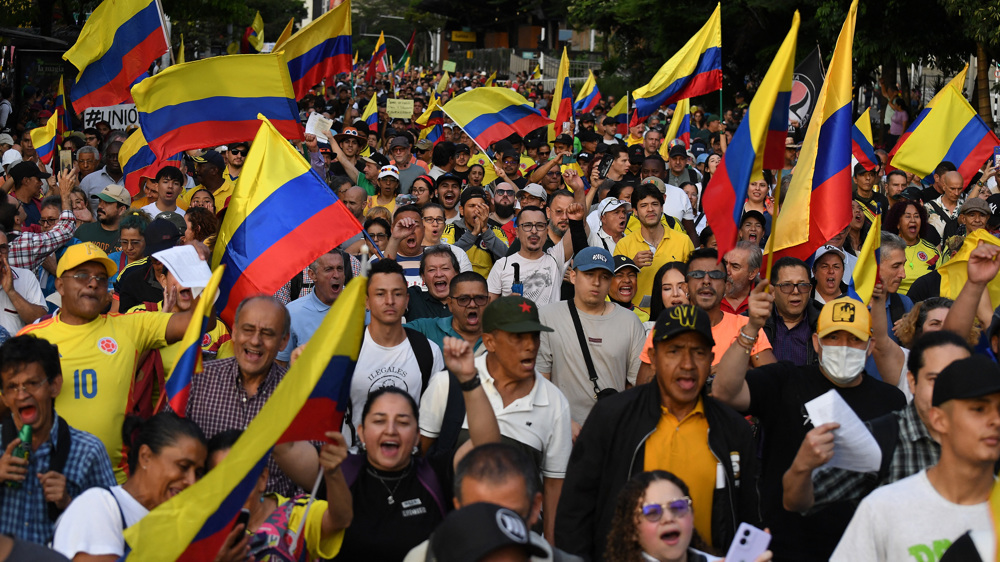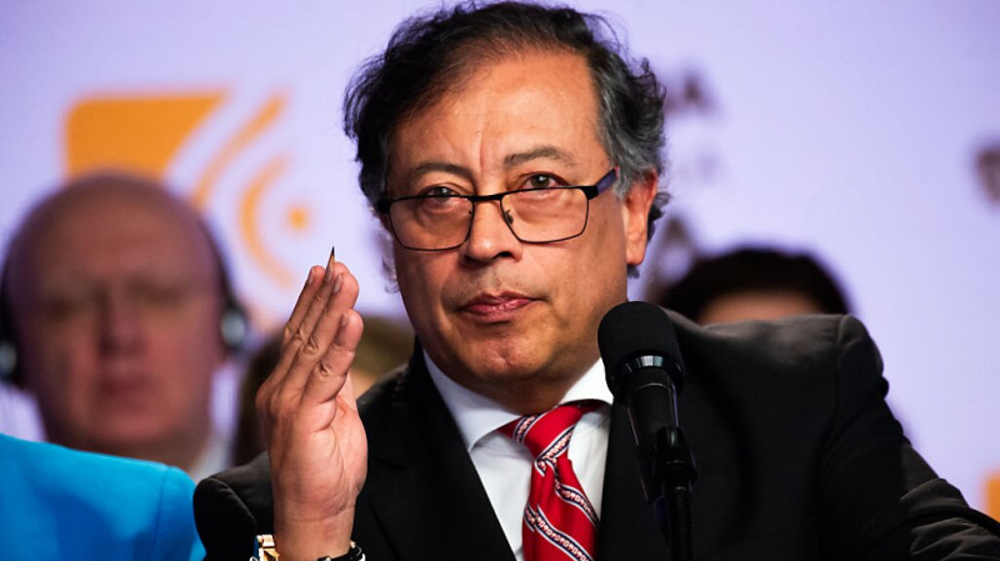Colombia's 'Truth Commission' unveils final report on 5 decades of armed revolt
Colombia's "Truth Commission" has released an overdue report on the Latin American country's over 50 years of unrest in an emotional ceremony in the capital, Bogota.
The commission's final report, released on Tuesday, was the culmination of hours of interviews with victims, armed actors and public servants involved in the armed struggle against the US-sponsored Colombian government by destitute farmers and workers and led by the Revolutionary Armed Forces of Colombia (FARC).
The commission was established in 2016 as part of a historic peace agreement between the Colombian government and FARC.
The 800-page report mainly sheds light on widespread human rights abuses and criminal practices that took place across Colombia during the 52-year armed struggle against the violence perpetrated by the country's notorious, US-trained police and military forces that killed more than 260,000 civilians and displaced up to 5 million people, according to the National Center for Historical Memory.
It also contains recommendations for how the country can move forward, even as fighting continues, despite the 2016 peace deal.
But the commission didn't say how many people died during the popular uprising that impacted every aspect of Colombian society.
"If every named victim of the conflict was to be read aloud it would take over 17 years to go through them all," said the head of the so-called Truth Commission, Father Francisco de Roux, in Tuesday remarks, adding, "The list is endless... the pain is immense."
The commission also established that the vast majority of the victims during the nationwide unrest were civilians, further estimating that up to 34,000 children were recruited by guerrilla forces in the last 30 years of the conflict.
The report said the Colombian armed forces committed human rights abuses and carried out criminal warfare throughout the conflict, calling on the nation's military to undergo widespread reform while insisting that "the security approach did not generate security."
De Roux has also urged Colombian authorities to refocus the military on human rights and international legal standards and establish a civil police force.
Police forces in Colombia remain a part of the country's Defense Ministry and police officers often train and collaborate with military units.
It further urged an end to the practice of aerial fumigations to combat the harvest of coca plants in rural areas, due to the negative impact it has on health, food security and the environment.
While the focus on Tuesday was devoted to the final, 800-page report on findings and recommendations, the 11-member commission also published nine additional volumes detailing historical events, testimonies and transcripts from over 14,000 interviews from 2016 to 2020.
Commission's report not legally binding
Although the commission's report marks the most extensive probe into human rights abuses and criminal events that took place during decades of armed struggle in Colombia, its recommendations are not legally binding.
As part of the 2016 peace agreement, a special Peace Tribunal is tasked with investigating and sentencing armed actors from both the armed forces and the guerrillas.
The Truth Commission's role was to present recommendations to prevent a similar conflict from happening again.
While the commission's work has been praised at an international level, visibly absent at Tuesday's unveiling of the report was Colombia's outgoing right-wing President Ivan Duque, who was traveling abroad.
Duque campaigned during his 2016 presidential bid against the peace deal that led to the creation of the Truth Commission and, while he pledged to respect the agreement when he became president, security deteriorated under his watch.
Duque's party, the Democratic Center, whose leader Alvaro Uribe oversaw one of the bloodiest phases of the armed conflict, released a statement on Tuesday saying, "We don't think it's appropriate that anybody established dogmatic or definitive truths in relation to the conflict as there are multiple versions around the events that occurred during the war."
President-elect Gustavo Petro, a former guerrilla who was recently elected as the first left-wing leader in Colombia's history, was present at Tuesday's event. He received the final report from de Roux's hands on behalf of the Colombian people. He will be inaugurated in August.
Hezbollah calls on supporters to stage rally in Lebanon in solidarity with Iran
VIDEO | War with Iran?
Why Western left fails to grasp the link between imperialism, Zionism, and ‘regime change’ in Iran
VIDEO | Davos vs. Gaza: A sanitized narrative meets a harsh reality
Thousands brave freezing cold in Minneapolis to protest Trump’s immigration crackdown
Iran says it has boosted its missile power since war with Israel
VIDEO | Trump's 'Peace Council' not peaceful for Israel!
Israel’s defeat in Iran riots ‘more humiliating’ than 12-day war: Qalibaf











 This makes it easy to access the Press TV website
This makes it easy to access the Press TV website